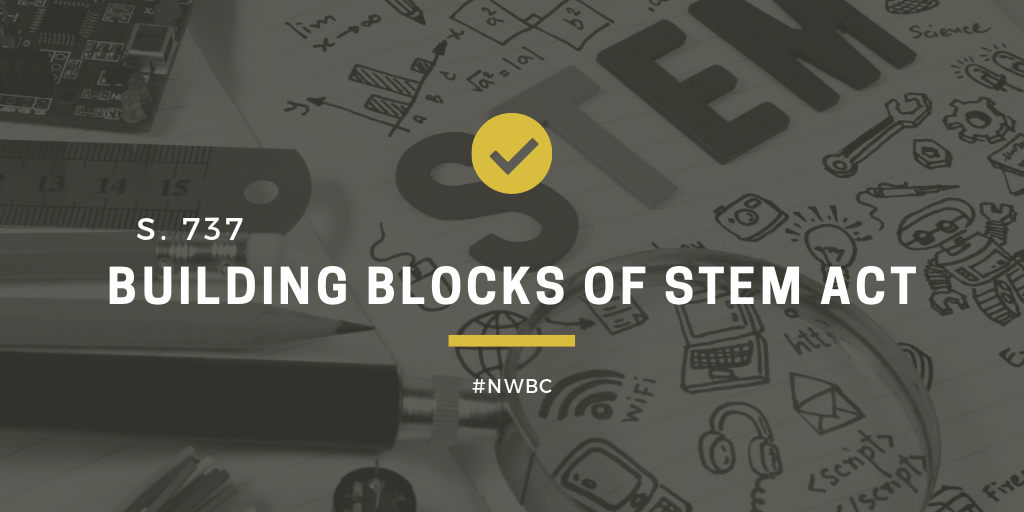
THE NATIONAL WOMEN’S BUSINESS COUNCIL APPLAUDS THE PASSAGE OF ‘BUILDING BLOCKS OF STEM ACT’

FOR IMMEDIATE RELEASE
Contact:
Temren Wroge
202-738-3523
Temren.Wroge@sba.gov
WASHINGTON, D.C., January 06, 2020 – S. 737, the Building Blocks of STEM Act, was signed into law by President Donald J. Trump on December 24, 2019. Sponsored by Sen. Jacky Rosen (D-NV), the bill instructs the National Science Foundation (NSF) to more equitably allocate funding for research with a focus on early childhood education. It also directs NSF to support research on factors that discourage or encourage girls to engage in STEM activities, including computer science.
The National Women’s Business Council (NWBC) is encouraged by the passage of this legislation and will continue to identify pipeline barriers for women entrepreneurs in the STEM fields. “Just four days prior to the passage of this bill, NWBC released its 2019 Annual Report, which provides policy recommendations in three key areas of importance to female founders including women in STEM. The passage of this bill is very encouraging and both NWBC and its staff remain resolute in working to advance policies that provide greater insight and support for female engagement in STEM,” said Nina Roque, Executive Director, National Women’s Business Council.
NWBC expressed support for the key provisions of S.737 in its 2019 Annual Report:
- NSF Grants Should be Utilized for Research Regarding Female Students’ Engagement in STEM: The Council agrees that NSF grants to increase the participation of underrepresented populations in STEM fields should be leveraged and utilized for in-depth research into various subjects regarding female students—students in prekindergarten through elementary school—including: (1) the role of teachers and caregivers in encouraging, or discouraging, participation by female students in STEM activities; and (2) the types of STEM activities that encourage greater participation by these students.
- NSF Computer Science Education Grants Should be Utilized for Development of Gender-Inclusive Learning and Teaching Tools: NSF grants marked for ‘computer science education’ and ‘computational thinking’ research should be utilized to support development and implementation of various teaching and learning tools and models, including: (1) developing and offering gender-inclusive computer science enrichment programs; and (2) acquainting female students in prekindergarten through elementary school with careers in computer science.


